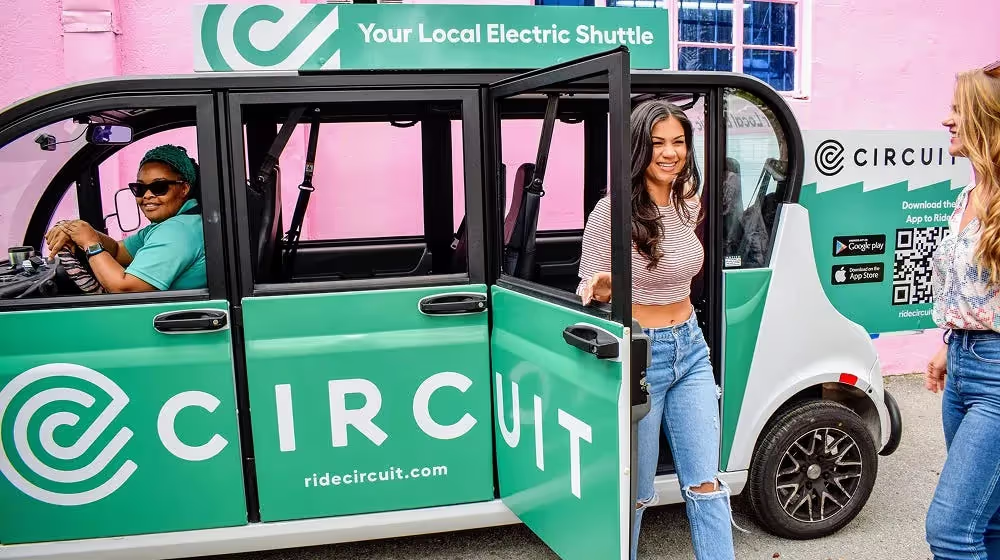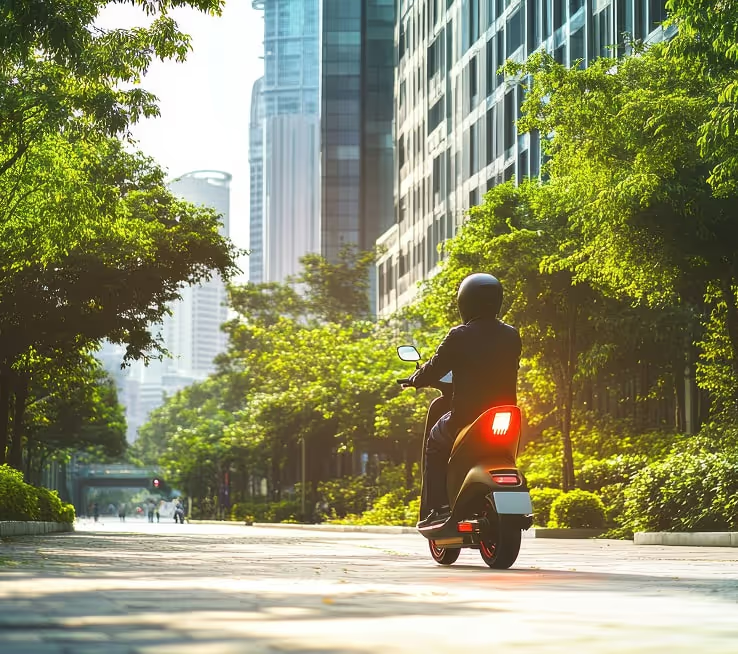The taxes and tariffs coming for EVs and e-bikes

This week’s mobility news is packed with power plays and policy shifts. Lyft and May Mobility push forward with driverless ambitions, while Uber takes DoorDash to court over alleged strong-arm tactics. Meanwhile, tariffs shake up the e-bike market on both sides of the Atlantic, China’s auto industry keeps Western rivals on edge, and a new book explains why Americans just aren’t moving like they used to.
What you need to know
A tax hike the GOP supports: A group of Republican senators are pushing a bill that would eliminate the $7,500 EV tax credit, while another bill proposed by Nebraska Sen. Deb Fischer would impose a $1,000 tax on EVs to fund road repairs. It is quite the public policy whiplash.
Lyft's Autonomous Ambitions: Lyft says it will deploy fully autonomous robotaxis in Dallas by 2026 powered by Mobileye, the Israeli autonomous software group. The vehicle fleet will be owned and maintained by Japanese conglomerate Marubeni. This comes on the heels of Uber announcing a partnership with Waymo, which will allow customers in Austin, Tex. to hail a Waymo robotaxi through the Uber app starting next month.
Higher e-bike prices coming to America: The 10% tariff that President Trump is slapping on all Chinese imports will be on top of an existing 25% tariff on bicycles. The result will likely be higher prices for e-bikes, nearly all of which are partially or fully manufactured and assembled in China.

…but lower ones coming to Britain: The UK government is lifting tariffs on non-folding e-bikes following a recommendation from the Trade Remedies Authority, which concluded that the tariffs’ harm to British consumers outweighed the potential benefit to domestic industry, which only produces about 4% of the e-bikes sold in the UK. The move could lead to price cuts of £200 on e-bikes. However, the government will maintain tariffs on folding e-bikes, ostensibly because that is the only type of e-bike made by Brompton, a UK bike manufacturer.

May Mobility launches driverless shuttles in Georgia: The Ann Arbor-based startup is removing the human safety operator from the free autonomous shuttles that it has been operating in Peachtree Corners, Ga., since September. And it’s going to start charging for the service.
Uber sues DoorDash: Uber’s suit contends that DoorDash has used its dominant position in food delivery to coerce restaurants into not doing business with competitors, namely Uber Eats. DoorDash threatens restaurants with higher commission rates to restaurants that participate in Uber Eats. DoorDash says the case is meritless.
Where are VCs putting their money?
In this episode, Nick Perloff-Giles sits down with Puneeth Meruva, Partner at Trucks VC, a fund which invests in early-stage ideas that make transportation decarbonized, safer and more accessible. With the retrenchment of public dollars in things like electrification and alternatives to private automotives, the private sector is exploring where true creativity and returns are possible, and where policy adaptations can yield scalable change; hear in this conversation where the future dollars of early stage investors might go!

¡Hasta pronto, Miami!
CoMotion MIAMI is back for the 6th and most important edition on April 29-30, 2025. Meet and connect with leading policymakers and innovators from all corners of the mobility revolution.
Hear from the likes of:
- Mayor Daniella Levine Cava, Miami-Dade County
- Beth Kigel, Vice President, HNTB
- Keith Carswell, Director, Department of Economic Innovation & Development, City of Miami
- Kevin Noertker, Co-Founder & CEO, Ampaire
- Justine Johnson, SVP & Chief Mobility Officer, MEDC
- Dmitriy Vanchugov, Global Head of Transit Partnerships, Uber Transit
- Benjamin Limmer, Public Transportation Bureau Chief, Connecticut Department of Transportation
- Paul Comfort, Host & Producer, Transit Unplugged
- Christopher Hudtwalcker, Senior Strategy & Innovation Officer, PortMiami
Attend and interact with the most influential thought-leaders in mobility, get your pass now.
How can you compete with BYD? Chinese automaker BYD will offer an advanced driver assistance system in all of its vehicles, including its $9,600 Seagull hatchback. Offering that kind of technology for that low of a price is unfathomable for European and U.S. automakers. It is the latest example of the threat that China’s burgeoning auto industry poses to western incumbents.
Americans definitely believe in climate change: A survey by Yale and George Mason universities shows that American public opinion on climate change is less polarized than political discourse would suggest. Two-thirds of Americans believe climate change has been affecting the weather and 64% are at least “somewhat” worried about global warming. Of course, just because people believe global warming is a problem doesn’t mean they are willing to pay higher gas prices. Therein lies the challenge for policymakers!
Partner content

The 2026 FIFA World Cup will bring millions of visitors to 11 U.S. regions. The challenge? Keeping cities moving — efficiently, safely, and seamlessly. and public agencies in these host regions are looking for ready-to-deploy solutions to solve critical mobility challenges, from real-time multilingual wayfinding to seamless trip planning and smart curb management. CoMotion is proud to support!
What we're reading

West Palm Beach is growing: In a recent address, Mayor Keith James highlighted West Palm Beach's progress in upgrading its mobility systems — Downtown residents are already experiencing the improvements, and city officials are developing new plans to further enhance transportation options. The City and Downtown Development Authority have launched services like RideWPB and public transit investment is yielding significant economic returns. Circuit has also has played a key role in WPB’s mobility evolution.
Why America stopped moving: In an interview with CityLab, Yoni Appelbaum discusses the data underpinning his new book, Stuck: How the Privileged & Propertied Broke the Engine of American Opportunity. Americans used to move for opportunity—now they’re stuck, and housing costs are soaring. Zoning laws, NIMBY resistance, and sky-high home prices have trapped people in place, crushing mobility and fueling inequality. What was once a nation of movers and shakers is now a land of locked doors and unaffordable rents.
Two competing futures for autonomous driving: Writing for New York Magazine, John Herrman describes the problems that ride-hail companies and automakers face in trying to plan for an autonomous future. For instance, owning and operating driverless fleets could prove profitable in the long-term for ride-hail operators, but in the short-term, it’s extremely expensive.
Jobs
Transportation managers for the ‘28 Olympics: LA28 is looking for a senior transportation manager and a public transportation manager.

